
8 minute read
ADVENT HEALTH
Directions: Prepare the chicken breast by cutting into long thin strips, placing in a frying pan to which water and a pinch of salt had been added. Simmer until chicken is done, remove from water and save water; shred chicken. Bring chicken water back to a simmer and gently add shrimp, peeled and deveined. Poach 2-3 minutes until just cooked through. Drain. Dice shrimp and combine with shredded chicken and peanuts. Set aside. Meanwhile, mix 1 teaspoon salt, sugar, lemon or lime juice in a small bowl. If chilies are desired, cut into very fine rounds. Now combine the fruit with chicken and shrimp in a large bowl, add juice mix, season with salt and pepper, add half the fried garlic and shallots and toss. Place in a serving bowl and sprinkle remaining shallots, garlic, cilantro leaves, and chilies (if desired).
Professionally licensed, Locally Owned, Managed, and Bonded
Advertisement
Reducing Your Health Risks With Vaccines
Vaccines are one of the best ways to reduce your risk of illness and the spread of disease. Serious research has gone into making vaccines that are safe, efficient and effective for all ages.
Who Needs Vaccines?
RODOLFO FERNANDEZ, MD,
Adults and children need vaccines to reduce health risks. The types needed may depend on your age, health history or where you work and travel. From birth, timely vaccination helps provide immunity before children are exposed to potentially life-threatening diseases.
How Can Vaccines Help Me?
• Landscaping • Irrigation • Lawn Care • Yard Spraying • Sod • Pest Service

Irrigation
• Be less likely to pass on infections to your close contacts • Not miss work or school because of sick time • Prevent serious complications and even death from certain infections • Reduce your risk of getting sick when traveling • Save money on medical costs from illness • Spend more time enjoying life • Stay healthy and active • Take care of your family • Worry less about your risk for infections Your joints were made to lift you up. 863-439-6550 www.GarrisonLand.com Lawn Care $50 Referral fee for contacts leading to Yard Spray or Pest Control agreements.
How Do Vaccines Work?
Our In-Person Central Florida Health Expos are Back!
They will start September 2021 - March 2022
Vaccines tell your own immune system how to prevent certain kinds of diseases. A vaccine uses a tiny amount of substance that lets your body build up antibodies and other defenses to a virus or bacteria. This helps to prevent or lessen the severity of many types of diseases caused by infection.
A vaccine is most often done with an injection by a small needle into your arm. Some vaccines work in one shot. Others need to be done in two or more shots over a period of time.
What Vaccines Do I Need?

There are various vaccines that help protect adults from serious diseases. These include vaccines to prevent shingles, HPV, meningitis and pneumonia. Other vaccines are important for everyone. These include vaccines for tetanus, the flu and COVID-19.
It’s Not Too Late
If you’re worried that you have missed some vaccines, it’s not too late. Your primary care provider can make sure you easily get up to date on the shots that are right for you.
Schedule an appointment today at CentralFloridaPrimaryCare.com or call 407599-6111.
We’re here to do the same.
This column is sponsored by Advent Health, and the opinions expressed herein may not reflect those of CFHN or of its advertisers. Your joints allow you to do incredible things, but they’re vulnerable to damage, inflammation and wear-and-tear. Trust your knees and hips to the specialized orthopedic experts of AdventHealth Heart of Florida and AdventHealth Lake Wales — providing individualized care for even the most complex conditions to get you back in motion, fast.
For registration and more details, visit Rodolfo Fernandez, MD, is an internal medicine physician serving the Lake Wales community with whole-person care for ages 18 and up. http://www.centralfloridahealthexpo.com/ or email morgan@centralfloridamediagroup.com with any questions.
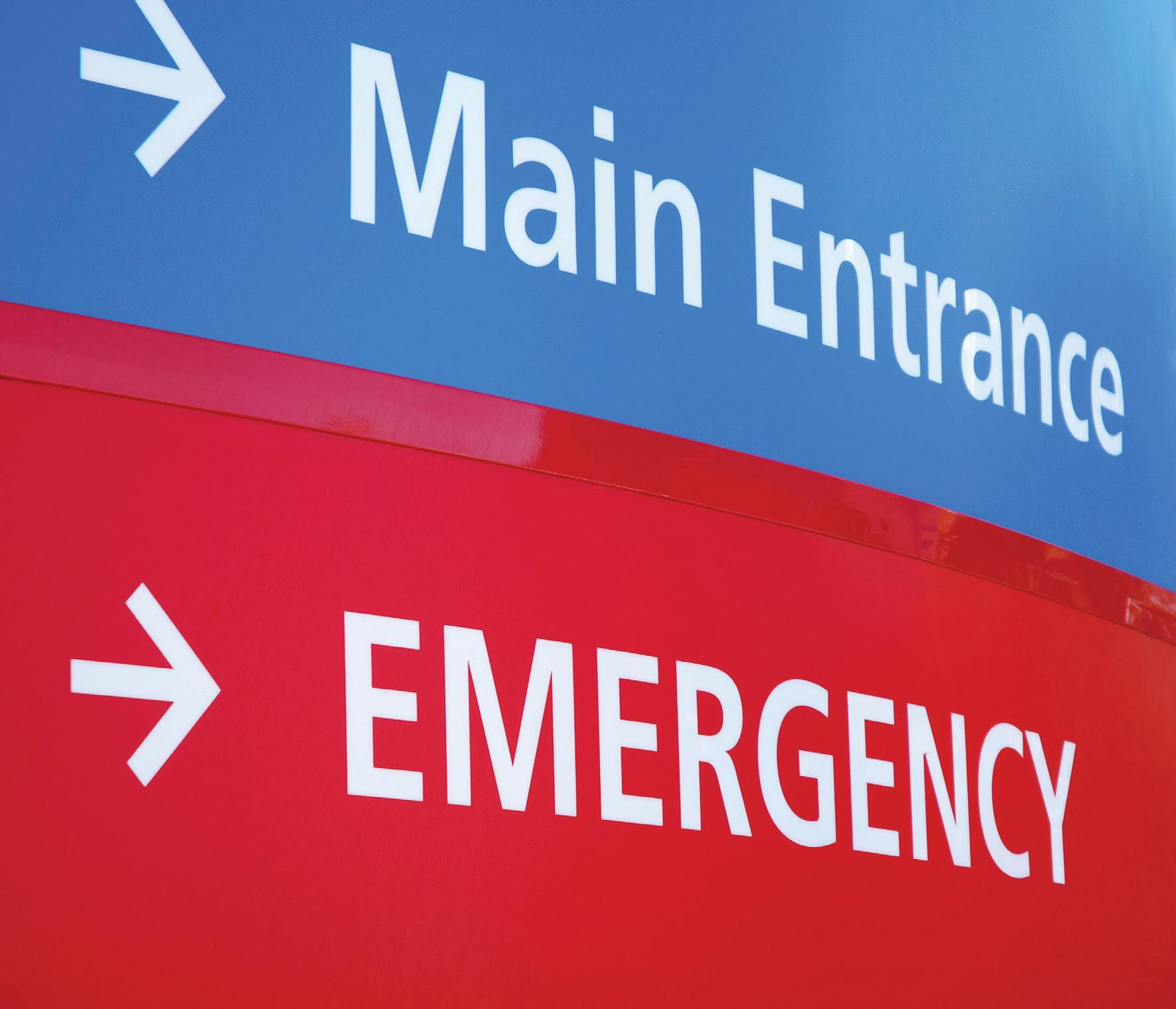
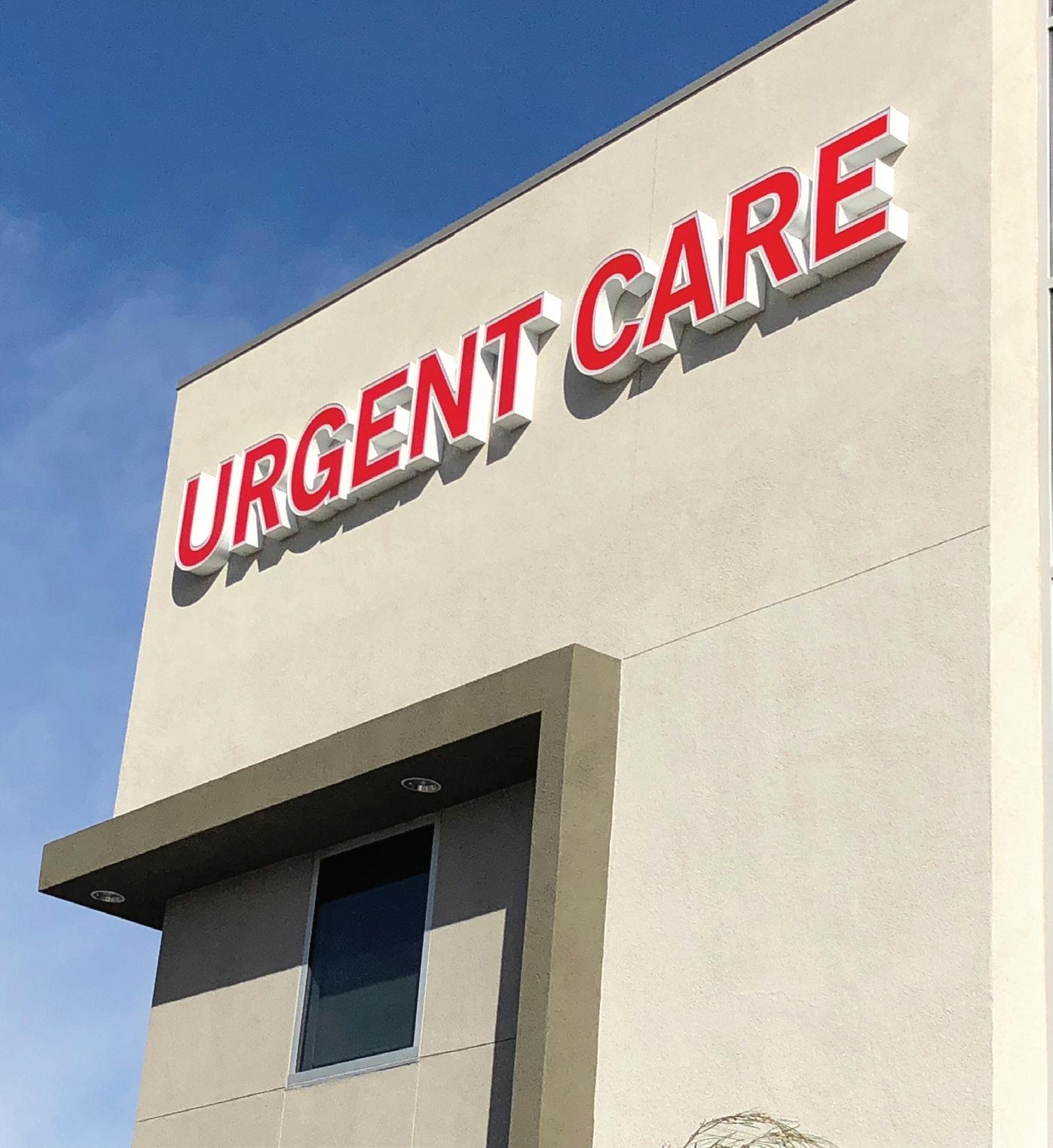
DECISION TIME: URGENT CARE OR ER?
Urgent Care Facilities Help to Ease the Burden on Emergency Rooms
by TERESA SCHIFFER
When patients are experiencing a medical emergency, whether it’s a serious injury or symptoms of severe illness, it’s important for them to get the right care. While an emergency room may be first to come to mind, sometimes a situation isn’t quite an emergency but still warrants immediate attention. This is why urgent care clinics are popping up throughout the country. While it’s hard to accurately assess current average trends for urgent care facilities due to the COVID-19 crisis, it is correct to say that the popularity and usage of these clinics has been on the rise for the past several years. From 2013 to 2019, the number of urgent care centers in the U.S. grew from about 6,100 to more than 9,600. By 2019, they were averaging about 30 visits per day each. April of 2020 was the lowest month on record for visits to urgent care facilities, most likely due to the general quarantines caused by the coronavirus pandemic, with an average of 17.8 visits per day. By June of that year, visits had risen to 33.3 visits per day, with COVID-19 being the most common cause for patients to visit an urgent care center. Here in Central Florida, Polk County has seen massive growth in healthcare services in recent years, with a number of expansions to established institutions. For example, Watson Clinic has established two urgent care centers in Lakeland. Jarett Gregory, DO, is a physician at Watson Clinic Urgent Care South, which is located on Frontage Road in South Lakeland near the Oakbridge Shopping Center. “Urgent care has a wide definition across the country,” Gregory explains. “Watson Clinic has created, basically, an ER alternative. An urgent care center like Watson Clinic’s has a number of ancillary services, like CAT scans, X-rays, ultrasound, full laboratory services. That’s not always the case if you go somewhere else in the country. But for us in Lakeland and Central Florida, Urgent Care is your ER alternative, which is time-efficient care at a reduced cost without sacrificing the quality or integrity of the care you’ll receive.” This means that unlike many other urgent care facilities nationwide, Watson Clinic Urgent Care South is able to handle complaints such as chest pains, broken bones and lacerations. These types of conditions would normally be directed to an emergency room. COVID screening and testing can also be conducted at the Watson Clinic Urgent Care centers. By taking these types of patients, urgent care facilities are able
to relieve some of the burden from ERs, where roughly one-third of the patients are non-urgent. Which One Is Right for You?
So how does a patient determine whether they should go to an urgent care center or an emergency room? For one thing, time of day makes a difference. While some urgent care clinics are open 24 hours, not all are. The urgent care centers that are operated by Watson Clinic are open and available seven days a week from 8 a.m. to 6 p.m. Furthermore, if a person has sustained a massive injury, such as in a car accident, or if they are being transported by ambulance, the ER would be the appropriate destination. Other cases that should be directed to an emergency room immediately include those in which the patient’s vital signs are unstable, a broken bone is exposed, or the patient has sustained massive head trauma or a significant loss of blood. Given the level of high-tech equipment at the Watson Clinic urgent care centers, they are currently being somewhat underutilized and could handle more volume than they are getting right now. Although Watson Clinic has done an outstanding job of informing the public of the existence of these facilities, patients should also be encouraged by their primary care physicians and other healthcare providers to make use of urgent care clinics whenever possible for minor emergencies. Most insurance carriers, as well as Medicaid for pediatric patients, cover visits to an urgent care center. In addition, the cost of treatment at an urgent care clinic is much lower than being treated in an emergency room of a hospital, making this option far more viable for those individuals without any form of medical insurance. Gregory describes the Watson Clinic Urgent Care South, summing up how it can benefit Polk County residents as well as visitors to the area, “If we can get people to have that knowledge that they can use it when they need it, it would help them to save those already stretched healthcare dollars.” HN
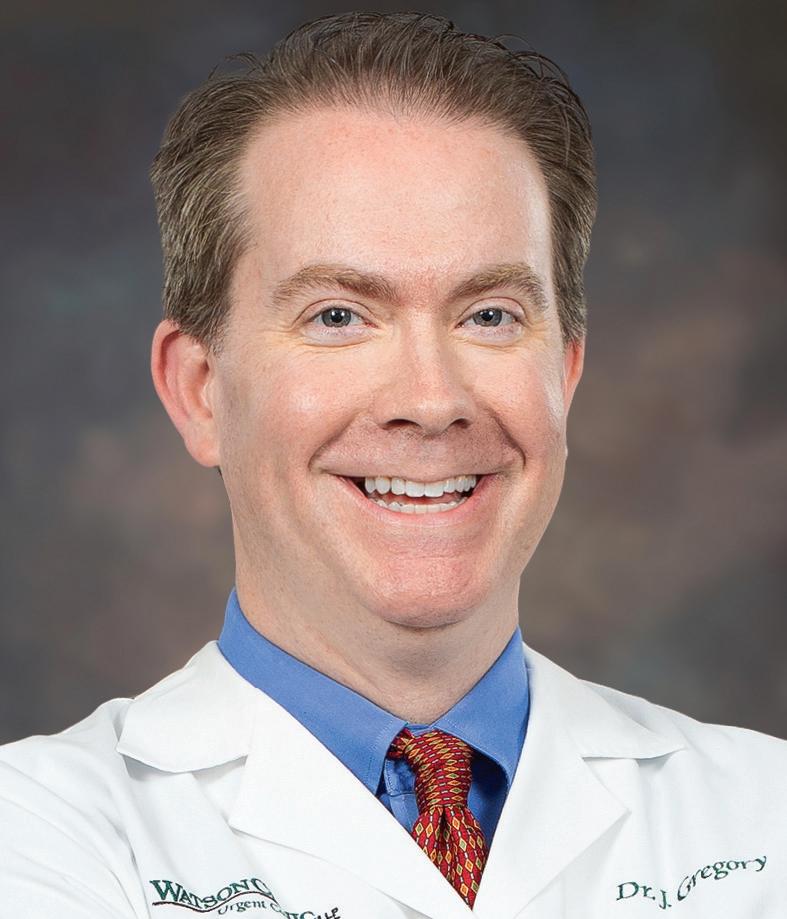
JARETT GREGORY, DO
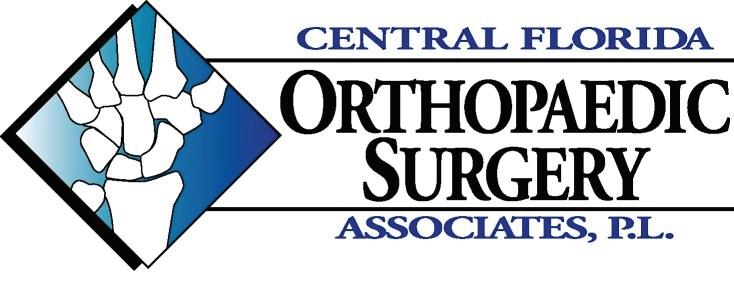
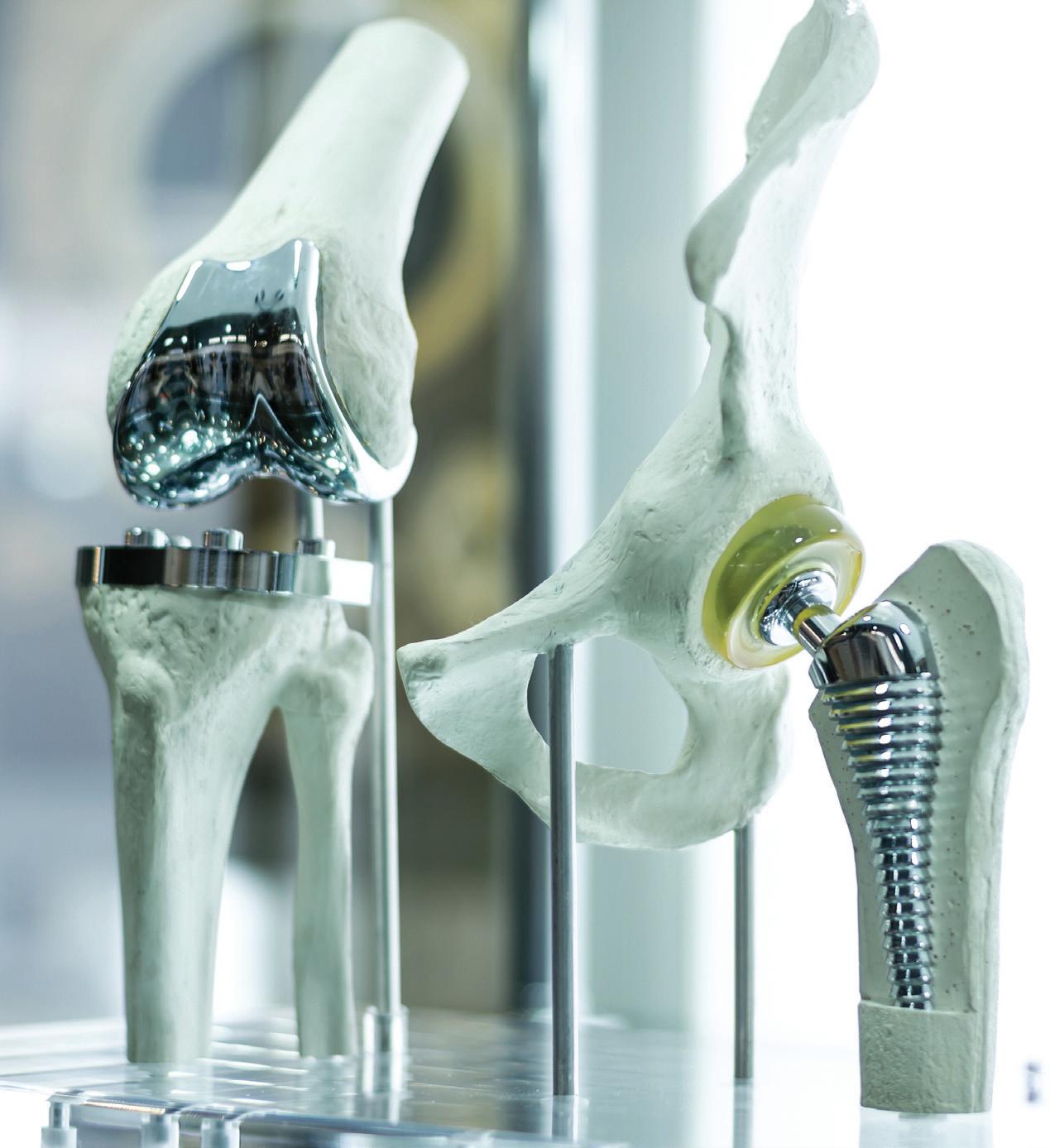
GENERAL ORTHOPAEDIC SURGERY
l Total Joint Arthroplasty l Fractures & Dislocations l Robotic Hip & Knee Replacement l Tumor Excision l Complex Hip & Knee Reconstruction l Sports Injuries l Musculoskeletal Oncology l Amputations l Tendon & Ligament Injuries l Congenital Disorders l Cancer of the Bones
Dr. Timothy J. Evans, M.D.
• University of Central Florida
Bachelor of Science degree in Biology • Georgetown University, Master of Science degree in
Physiology - top in his class • Creighton University Medical School • Henry Ford Hospital, orthopaedic surgery residency • Moffitt Cancer Center, training in orthopaedic oncology, complex bone & joint reconstruction & innovative treatments for metastatic disease of the bones
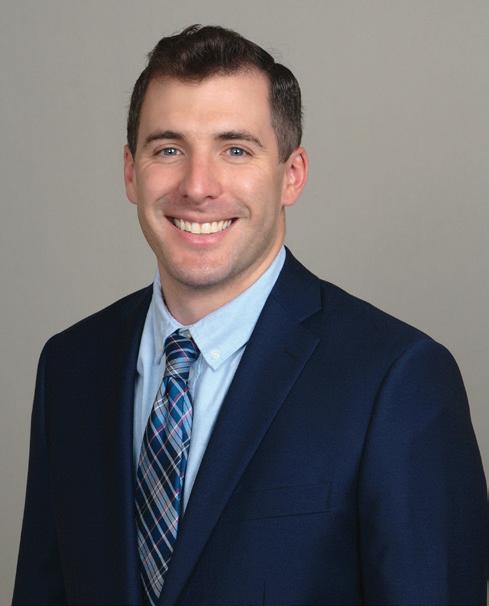
863.666.3436
2000 E. Edgewood Drive | Suite 112 | Lakeland, Florida 33803






